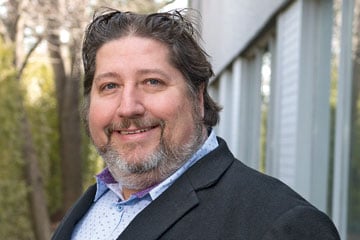
The Law Society of Ontario’s 2019 budget estimates the governing body will spend about $1 million more this year than last year on continuing professional development and says it will receive half a million dollars less in revenue from the endeavour.

The Law Society of Ontario’s 2019 budget estimates the governing body will spend about $1 million more this year than last year on continuing professional development and says it will receive half a million dollars less in revenue from the endeavour.
Some lawyers hoping to join the LSO’s board of directors say the LSO may need to do a better job at providing more resources for lawyers with fewer resources, amid competition from other professional associations and demand for free or low-cost programming.
Geoff Pollock, founder of Geoff Pollock & Associates PC, who is running for a Toronto-based bencher seat in the April 15 to 30 election, says he would like to see the law society put its archives of previous lectures online at no charge to licensees, since it would not add much cost at the margin.
Pollock says he would also like to see the LSO provide CPD credit for lawyers who volunteer with Pro Bono Ontario and that the law society could also consider reduced CPD fees for sole practitioners.
“I’m very concerned about the law society’s deficit and the amount of money the law society is spending,” says Pollock.
Revenue from CPD programming is budgeted for $8.25 million, according to the LSO’s 2019 budget, down from $8.69 million in 2018.
The LSO plans to spend $4.4 million on CPD, up from $3.9 million in 2018, the budget says.
Overall, the law society plans to spend about 23 per cent of its budget — $32,594,500 — on professional development and competence this year.
The LSO’s other revenue sources include about $101 million in annual fees and about $14.2 million from the licensure process, the budget says.
“The number of alternative service providers in the CPD field [is] continuing to increase, diverting some demand away from the Law Society,” said the budget approved by current benchers on Oct. 25, 2018.
“The Law Society providing more equity and diversity programming, at nominal or no charge, to permit members to fulfil obligations … The CPD revenue mix means there are limited opportunities to curtail CPD expenses in line with decreasing revenues as virtually the same number of courses and programs are being offered.”
Law Society Communications Advisor Gelek Badheytsang says that licensees are not paid to speak at CPD events, but do receive a “thank you” gift card and have hours count toward their own CPD requirements.
Non-licensee speakers may be compensated “on occasion,” Badheytsang says.
Robert Besunder, a sole practitioner for bencher in Toronto, says he doesn’t think the LSO should get a big financial surplus from CPD programming.
After moving from sole and small practices to his current role at Diamond and Diamond Law, Toronto bencher candidate Darryl Singer says he can see how small practitioners have price sensitivity to the events, which can cost hundreds of dollars.
“I think 12 hours is kind of light,” says Singer, who has lectured at CPD events.
“Here’s what I do hear, though, from sole practitioners and small-firm lawyers, and that is that the cost of CPD is too high.”
Based out of Prince Edward County, Ont., bencher candidate Cheryl Lean says that, while she routinely does more CPD than what is required, she would take a fresh look at an extra three hours of Equality, Diversity and Inclusion training that lawyers are required by the LSO to complete before 2020.
“We have to be more alert as to how to support new lawyers, but I don’t know that it’s necessarily through formal CPD. What I’m talking about is if the local law association had their own lecture series,” says Lean.